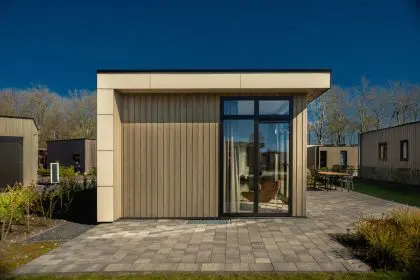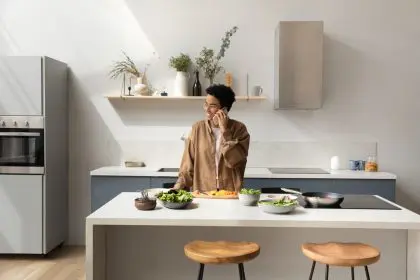The tiny home movement has gained significant traction in recent years, attracting individuals seeking a simpler, more affordable lifestyle. On the other end of the spectrum, the allure of renting a luxury mansion continues to captivate those who desire opulence and grandeur. This article explores the financial benefits of owning a tiny home versus renting a luxury mansion, helping you understand which option might be more advantageous for your wallet and long-term financial health.
The cost of ownership: Tiny home edition
Initial investment and long-term savings
Owning a tiny home requires a substantial upfront investment, but the long-term financial benefits are considerable. The initial cost of purchasing a tiny home ranges from $30,000 to $100,000, depending on size, location, and customization options. This cost is significantly lower than the down payment for a traditional home or the ongoing rent for a luxury mansion. Additionally, tiny homes often qualify for affordable financing options, making ownership accessible to a broader demographic.
Lower utility and maintenance costs
Tiny homes are designed with efficiency in mind, resulting in lower utility bills and maintenance costs. The reduced square footage means less space to heat, cool, and light, translating to significant savings on energy expenses. Moreover, the simplicity of tiny homes minimizes maintenance needs, reducing the frequency and cost of repairs. These savings can be substantial over time, contributing to a more financially stable lifestyle.
The financial implications of renting a luxury mansion
High monthly rent and additional costs
Renting a luxury mansion comes with a hefty monthly price tag. Depending on location and amenities, monthly rent can range from $10,000 to $50,000 or more. This cost often excludes utilities, maintenance, and other fees, which can add up quickly. For many, these expenses can consume a significant portion of their income, leaving less room for savings and investments.
Lack of equity and long-term financial impact
One of the most significant downsides of renting, regardless of the property type, is the lack of equity accumulation. Monthly rent payments do not contribute to ownership, meaning that renters do not build any financial assets from their payments. Over time, this can harm one’s financial health, as there are no property assets to leverage for future financial needs or investments.
Financial freedom and flexibility
Mobility and minimalism with tiny homes
Owning a tiny home offers unparalleled financial freedom and flexibility. Many tiny homes are built on wheels, allowing owners to relocate easily without incurring significant moving costs. This mobility can especially benefit those who value travel or need to move frequently for work. Additionally, the minimalist lifestyle encouraged by tiny home living can reduce spending on unnecessary items, further enhancing financial stability.
Luxury and convenience of renting mansions
Renting a luxury mansion, on the other hand, offers convenience and immediate access to high-end amenities and prime locations. This option can be appealing for individuals who prioritize luxury and convenience over long-term financial stability. However, it’s essential to consider the trade-offs, as the high cost of rent and lack of equity can impede financial growth and security.
Environmental and health considerations
Sustainability and health benefits of tiny homes
Tiny homes often have a smaller environmental footprint compared to larger properties, including luxury mansions. Many tiny homes are built with sustainable materials and incorporate energy-efficient systems, which can contribute to a greener lifestyle. Additionally, the simplicity of tiny home living can lead to reduced stress levels and improved mental health, as owners often experience less financial strain and a greater sense of control over their living environment.
Luxury amenities and potential downsides
While renting a luxury mansion offers immediate access to high-end amenities and spacious living conditions, it can also come with environmental and health downsides. Larger properties typically require more resources to maintain, leading to a higher environmental impact. Additionally, the financial strain of high rent and associated costs can contribute to stress and reduced overall well-being.
Conclusion
When weighing the financial benefits of owning a tiny home versus renting a luxury mansion, it’s clear that tiny homes offer significant long-term financial advantages. The lower initial investment, reduced utility and maintenance costs, and potential for mobility and minimalism contribute to a more financially stable and sustainable lifestyle. While renting a luxury mansion provides immediate access to luxury and convenience, the high costs and lack of equity accumulation can hinder long-term financial growth.
Ultimately, the choice between owning a tiny home and renting a luxury mansion depends on individual priorities and financial goals. For those seeking financial freedom, sustainability, and a simpler lifestyle, a tiny home may be the ideal choice. Conversely, individuals who prioritize luxury and convenience, and are less concerned with long-term financial implications, may find renting a luxury mansion more appealing. Regardless of the choice, understanding the financial impacts of each option is crucial in making an informed decision that aligns with one’s lifestyle and financial objectives.
This story was created using AI technology.

















